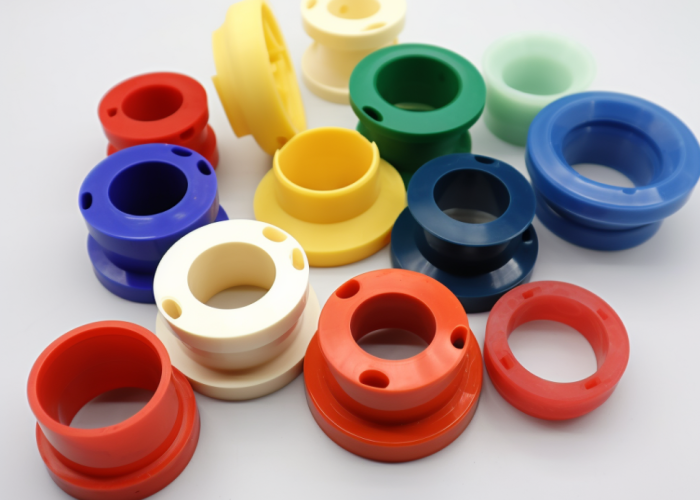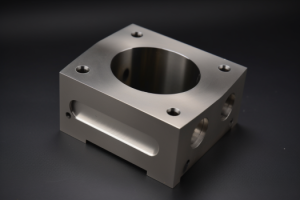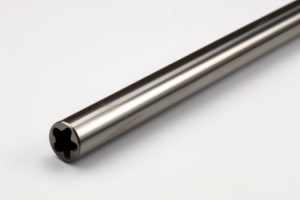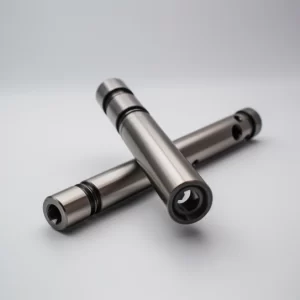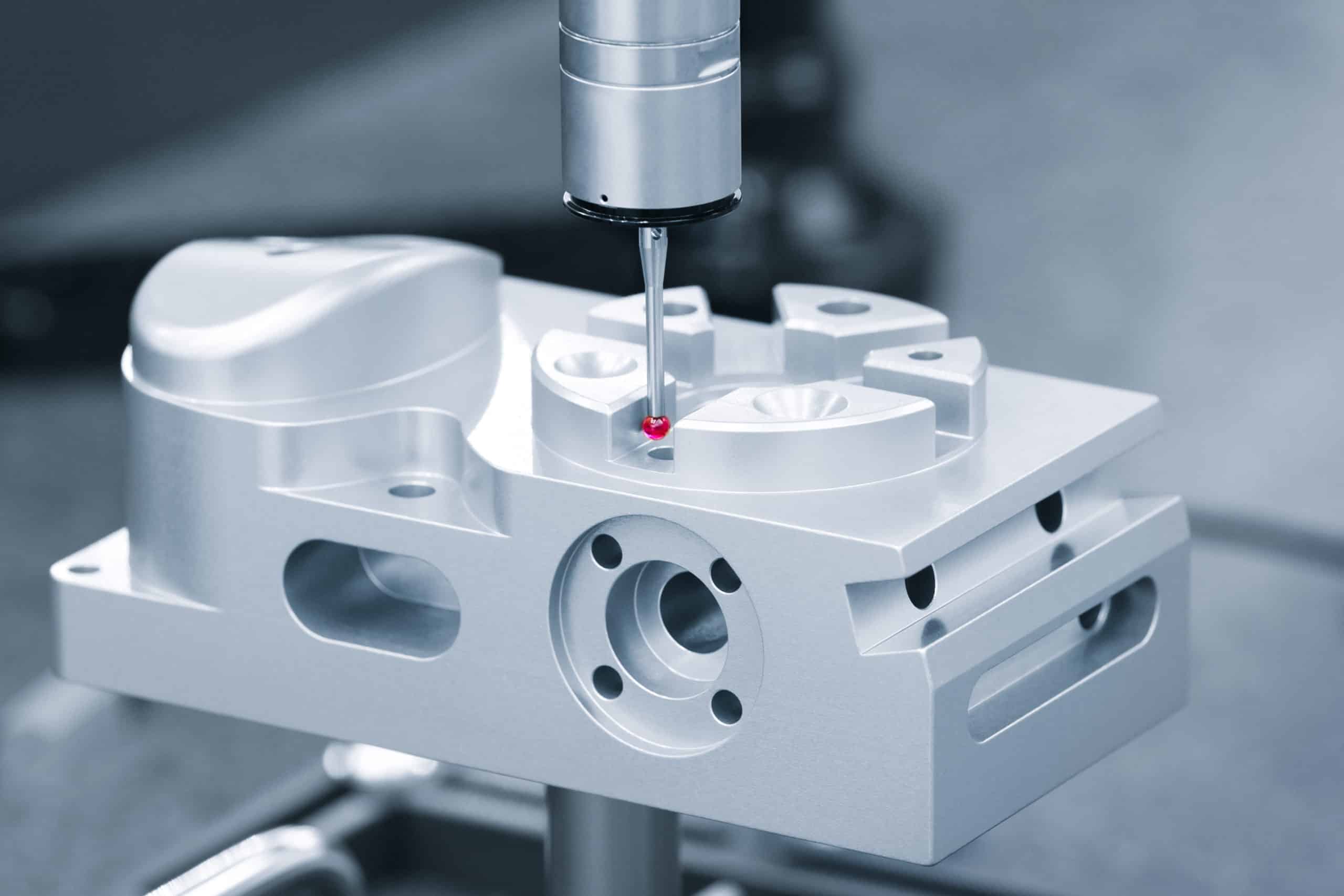Table of Contents
Delrin vs. Nylon
A Quick Comparison
When comparing Delrin and Nylon, it’s important to note that both are high-performance plastics with excellent mechanical properties. Although they share similarities, they also have unique qualities that differentiate them.
Delrin, also known as Acetal or Polyoxymethylene (POM)
Semi-crystalline thermoplastic Delrin has excellent dimensional stability, low friction, and high stiffness. Its high tensile strength makes it a robust material for demanding applications. Delrin also exhibits low moisture absorption, contributing to its outstanding performance in wet environments.
Nylon, also known as Polyamide (PA)
Applications requiring durability will benefit from its wear resistance. On the other hand, Nylon has a high tearing resistance, withstands heavy loads, and is resistant to different chemicals.
Increasing humidity absorption increases Nylon’s strength and toughness, making it an ideal choice for humid environments.
Read On
Now that we’ve introduced Delrin and Nylon and highlighted their fundamental differences, it’s time to delve deeper.
The following sections explore these materials’ specific properties, manufacturing processes, and applications in various industries. Delrin and Nylon will also be discussed.
Stay with us as we explore the complexities of Delrin and Nylon, whether you are a material scientist, an engineer, or just someone curious about high-performance plastics. The sections ahead offer a wealth of knowledge.
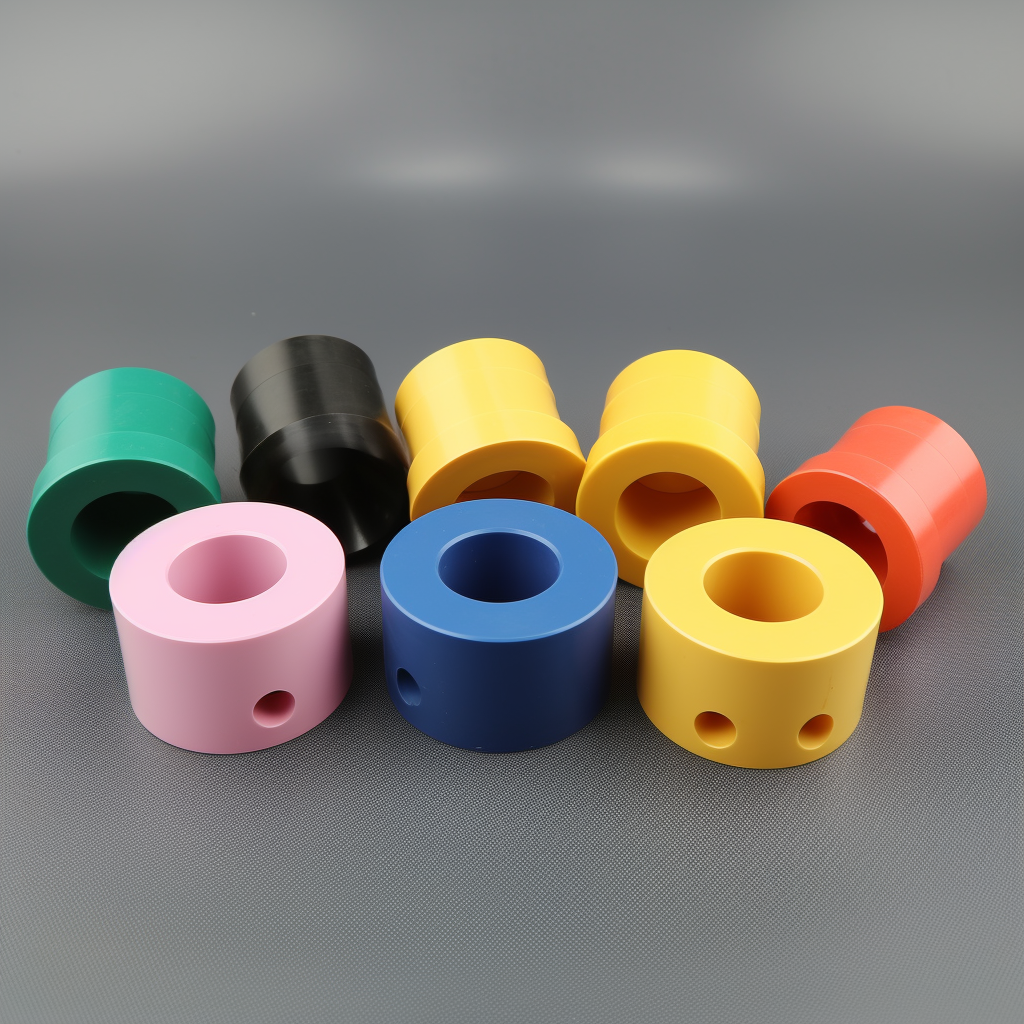
Understanding Delrin and Nylon
Two materials often come to mind regarding high-performance plastics: Delrin and Nylon. The materials possess distinctive characteristics that make them appropriate for diverse uses.
Delrin: A High-Performance Acetal Resin
Delrin, also known as Polyoxymethylene (POM), is a type of acetal resin developed by DuPont. This material is a popular choice for precision parts that require tight tolerances because it is stiff, has low friction, and is dimensionally stable. Delrin also exhibits low moisture absorption, which makes it perform well in wet environments.
Delrin has a high resistance to wear and abrasion, making it suitable for demanding applications like gears, bearings, and valve components. It also exhibits good chemical resistance and can withstand exposure to various solvents and fuels.
Nylon: A Versatile Thermoplastic
On the other hand, Nylon is a kind of polyamide recognized for its durability, toughness, and flexibility. It is semi-crystalline and has exceptional mechanical strength, thermal and chemical resistance.
Nylon components play a significant role in situations that require high durability and tensile strength, like electronic and automobile parts and structural applications.
It has a high boiling point and withstands wear and tear, making it ideal for high-temperature circumstances.
Nylon’s strength and toughness make it an increasingly popular choice for various applications. Because of its high temperature and wear resistance make it a versatile material for various industrial applications.
In the upcoming sections, we’ll explain these two materials’ unique characteristics and uses. We’ll also compare each material to help you decide which is best.
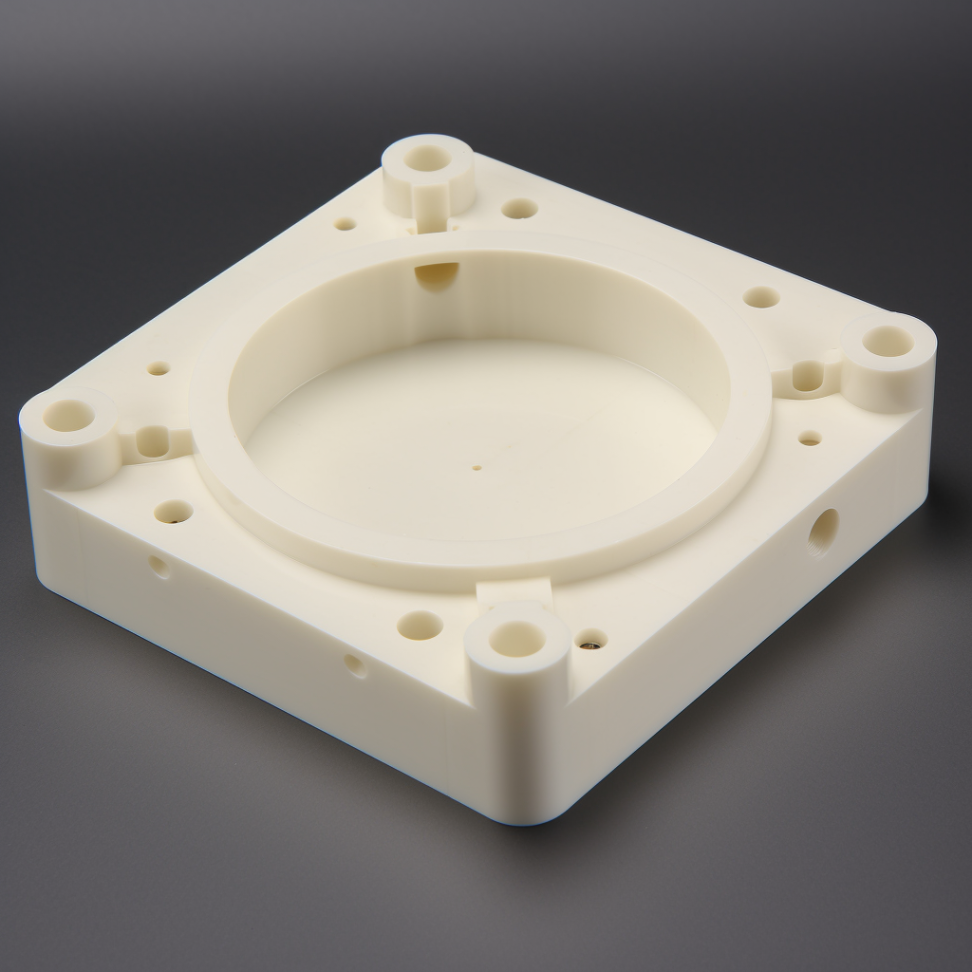
Mechanical and Physical Properties
Understanding Delrin and Nylon’s mechanical and physical properties is crucial when deciding which material to use for a specific application. Let’s delve into a detailed comparison of these properties.
Tensile Strength and Dimensional Stability
Delrin is known for its high tensile strength or the maximum stress it can withstand before it breaks or fails. This makes Delrin an excellent choice for mechanically demanding applications.
In addition to its high tensile strength, Delrin offers excellent dimensional stability, meaning it retains its size and shape even under stress or in varying environmental conditions.
However, Nylon also has a high tensile strength. Nonetheless, its strength level may differ based on the specific type of Nylon and the environmental conditions it is exposed to.
For instance, Nylon’s tensile strength can decrease if it absorbs moisture, which is something to consider in applications exposed to wet environments. However, Nylon is known for its toughness and flexibility, which can benefit applications requiring some flexibility.
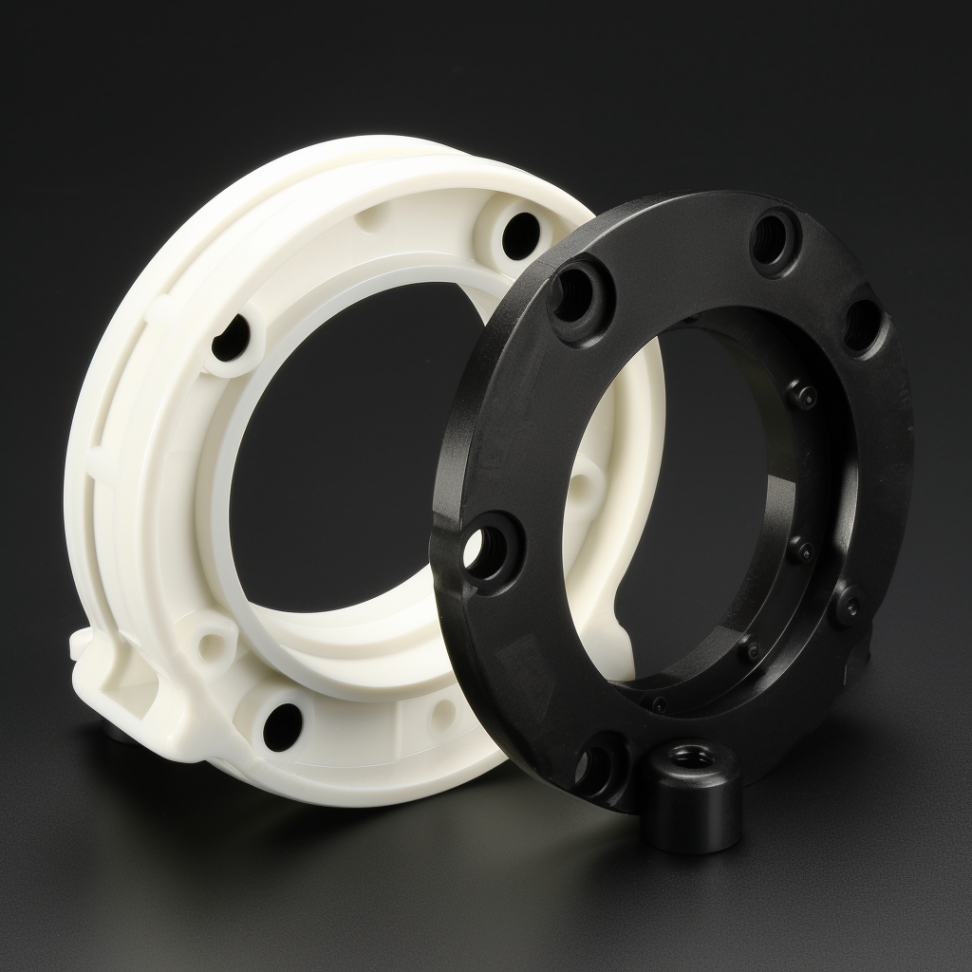
Resistance to High Temperatures and Moisture Absorption
When it comes to thermal resistance, both Delrin and Nylon perform well. Delrin has a high melting point, which allows it to maintain its properties at high temperatures. Delrin is suitable for valve components and electronic parts exposed to high temperatures.
Furthermore, nylon has good thermal properties, but its strength and stiffness can decrease at high temperatures. However, Nylon’s ability to withstand high temperatures makes it an ideal material for automotive parts often exposed to heat.
In terms of moisture absorption, Delrin has a clear advantage. Delrin has deficient moisture absorption to maintain its properties even in wet environments. This is particularly important in applications where dimensional stability is crucial.
On the other hand, Nylon can absorb moisture, affecting its mechanical properties. Certain types of Nylon can withstand moisture absorption, making them appropriate for use in areas with high humidity.
Here’s the summary table at a glance.
| Property | Delrin | Nylon |
| Tensile Strength | High | High |
| Dimensional Stability | Excellent | Good |
| Thermal Resistance | High | High |
| Moisture Absorption | Low | Can absorb moisture |
| Flexibility | Low | High |
| Wear and Abrasion Resistance | High | Good |
Chemical Resistance
In many applications, the resistance of a material to various chemicals is a critical factor. Delrin and Nylon exhibit good chemical resistance, but some differences are worth noting.
Delrin's Chemical Resistance
Delrin is known for its excellent resistance to a wide range of chemicals. It can withstand exposure to many solvents, neutral chemicals, and many types of fuel, making Delrin a suitable choice for applications like fuel systems or chemical processing equipment where the material may come into contact with various chemicals.
Please note that Delrin is not resistant to strong acids, so it may not be suitable for use in applications involving coming into contact with these chemicals.
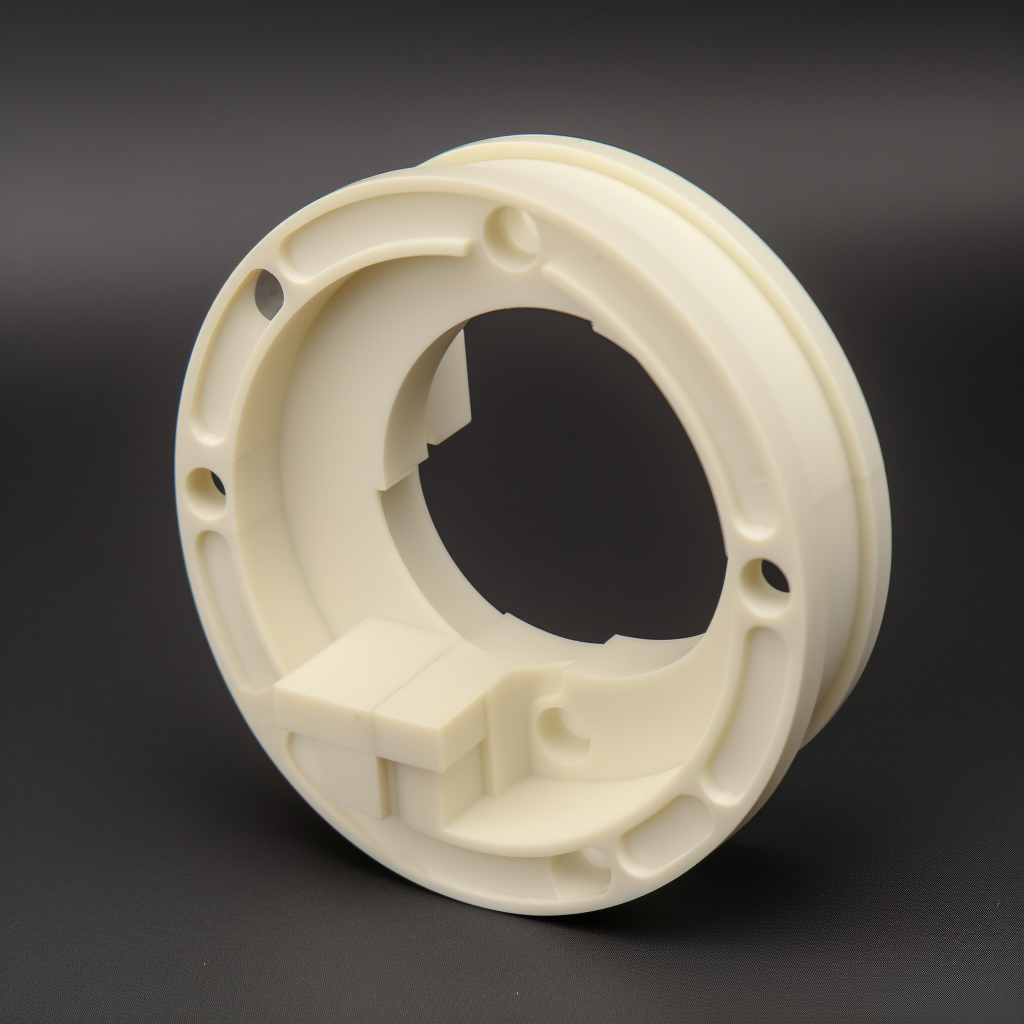
Nylon's Chemical Resistance
Nylon also exhibits good chemical resistance. It can withstand various chemicals, including many solvents, oils, and fuels. This makes Nylon versatile for multiple applications, from automotive parts to industrial machinery.
However, like Delrin, Nylon is not resistant to strong acids. Additionally, Nylon’s chemical resistance can be affected by moisture absorption. Nylon may change its physical and chemical properties when wet, impacting its performance in specific applications.
Here’s the summary table at a glance.
| Property | Delrin | Nylon |
|---|---|---|
| Resistance to Solvents | High | High |
| Resistance to Neutral Chemicals | High | High |
| Resistance to Fuels | High | High |
| Resistance to Strong Acids | Low | Low |
| Effect of Moisture Absorption on Chemical Resistance | Not affected | Can be affected |
Manufacturing and Applications
Delrin and Nylon frequently appear in manufacturing due to their unique properties. They are versatile materials that can be shaped and formed into various custom parts.
Delrin in Manufacturing
Delrin provides excellent dimensional stability to precision parts that require tight tolerances due to its excellent dimensional stability. It’s high stiffness and low friction make it an ideal material for gears, bearings, and other moving parts.
One of the critical applications of Delrin is in valve components. This material is appropriate for this application due to its high resistance to wear and abrasion and good chemical resistance. Delrin’s low moisture absorption also means it performs well in wet environments, often required for valve components.
Delrin also plays a role in the production of electronic parts. The material is suitable for printed circuit boards and other electronic components due to its excellent dimensional stability and high-temperature resistance.
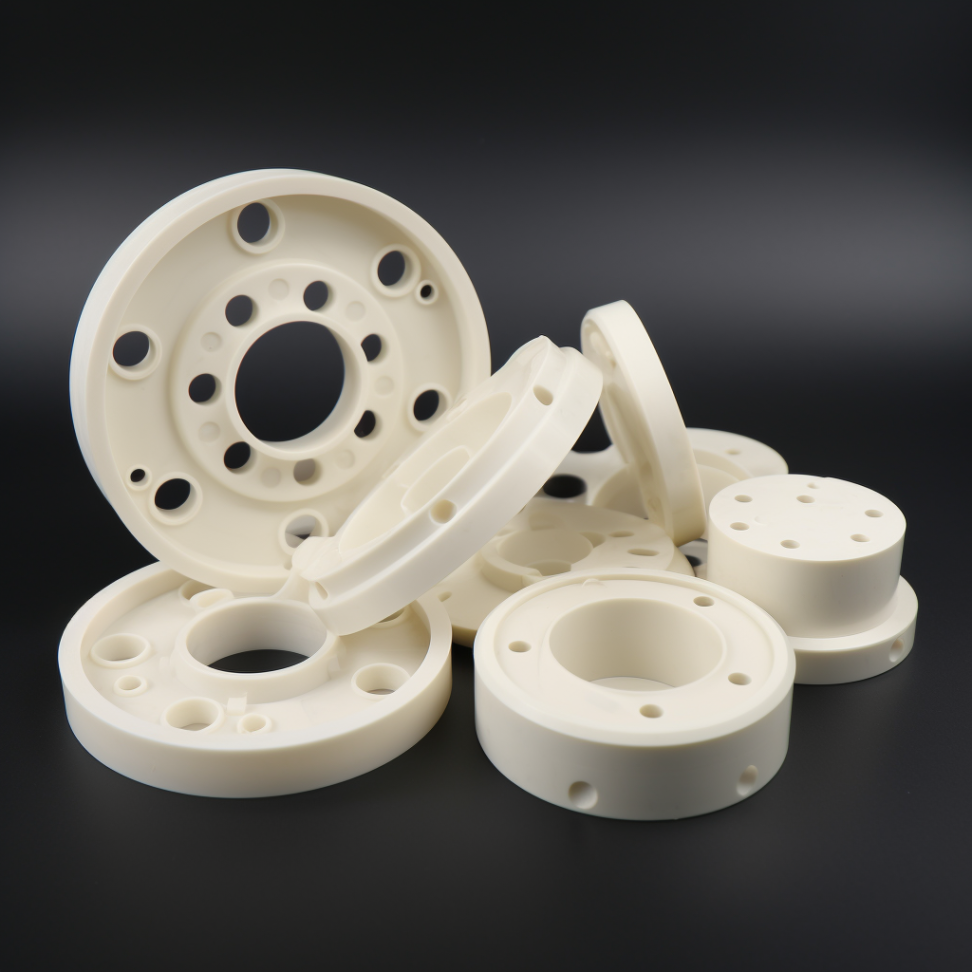
Nylon in Manufacturing
In contrast, Nylon stands out for its durability and sturdiness, making it an ideal option for tasks that demand significant mechanical strength. Its flexibility also makes it suitable for parts that need to withstand stress without breaking.
The automotive industry frequently employs nylon parts in various components because of their solid tensile properties and favorable thermal characteristics.
Nylon also finds use in structural applications, where its high mechanical strength and good wear resistance are beneficial. Due to its high-temperature resistance, this material is suitable for applications that require such properties.
| Property | Delrin | Nylon |
| Used in Precision Parts | Yes | Yes |
| Used in Valve Components | Yes | Not typically |
| Used in Electronic Parts | Yes | Not typically |
| Used in Automotive Industry | Not typically | Yes |
| Used in Structural Applications | Not typically | Yes |
Performance in Extreme Conditions
Let’s look at how Delrin and Nylon perform in high- and low-temperature conditions.
High and Low-Temperature Performance
Delrin is a material that can maintain its properties at high temperatures due to its high melting point. Hence, it suits valve components and electronic parts exposed to high temperatures.
However, like most plastics, Delrin’s properties can change at shallow temperatures, which is something to consider when used in such environments.
Nylon also has a high melting point, making it a good choice for applications such as automotive parts often exposed to heat. However, at high temperatures, Nylon’s strength and stiffness can decrease. Nylon maintains much of its toughness at low temperatures, which is a benefit in cold environments.
UV Light Resistance
When it comes to UV light resistance, both Delrin and Nylon have limitations. Prolonged exposure to UV light can lead to the degradation of most plastics, including Delrin and Nylon. Material failure can result in changes in color, reduced strength, and material failure.
However, specific grades of these materials are available with improved UV resistance. For instance, black Nylon has better UV resistance than natural Nylon. Similarly, particular grades of Delrin are UV-stabilized to enhance their performance in sunlight.
| Property | Delrin | Nylon |
| Performance at High Temperatures | Good | Good |
| Performance at Low Temperatures | Can change | Good |
| UV Light Resistance | Limited | Limited |
Varieties and Grades
Delrin and Nylon come in various types and grades, each with unique properties and applications.
Delrin Varieties and Grades
Delrin is available in several grades, each designed for specific applications. For instance, Delrin 150 is a standard grade used in general-purpose applications. It offers excellent mechanical properties, including high strength, rigidity, and toughness.
Another notable grade is Delrin AF, which contains Teflon fibers. This grade offers improved friction characteristics and wears resistance, making it ideal for applications like bearings and bushings where reduced friction is essential.
Nylon Varieties and Grades
Nylon also comes in a variety of types and grades. The most common types are Nylon 6 and Nylon 66, which differ in their molecular structure and, consequently, their properties.
Nylon 6 offers good mechanical properties and finds application in applications like gears and bearings. Nylon 66 is more suitable for applications that require higher temperature resistance and durability because of its higher melting point and resistance to wear.
Various grades of Nylon are available, including glass-filled and heat-stabilized rates, which offer improved strength and thermal resistance, respectively.
Alternatives and Similar Materials
Several materials come to mind when considering alternatives to Delrin and Nylon due to their similar properties and applications.
Polypropylene
Polypropylene is a type of plastic with high-tensile strength and is well-known for resisting chemical and thermal stress. Its low friction coefficient makes it suitable for applications requiring low friction.
One reason why polypropylene is standard in injection molding is because it is easy to machine. However, it has a lower impact strength than Nylon and Delrin.
POM Plastic (Polyoxymethylene)
POM, also known as Acetal, is another alternative to Delrin and Nylon. It has good dimensional stability and high tensile stress, making it suitable for demanding applications. POM also has a low coefficient of friction and requires no external lubrication, making it ideal for applications requiring moving parts.
POM frequently finds application in manufacturing materials due to its excellent machinability. It can withstand hot water and has a high heat deflection temperature. However, like Delrin and Nylon, prolonged exposure to UV light can affect POM’s properties.
Polyphenylene Sulfide (PPS)
Polyphenylene Sulfide is a type of high-performance plastic well-known for having a high melting point and exceptional chemical resistance.
It frequently appears in applications requiring heat and chemical exposure resistance.
However, PPS is more expensive than Delrin and Nylon, making it a less cost-effective option for some applications.
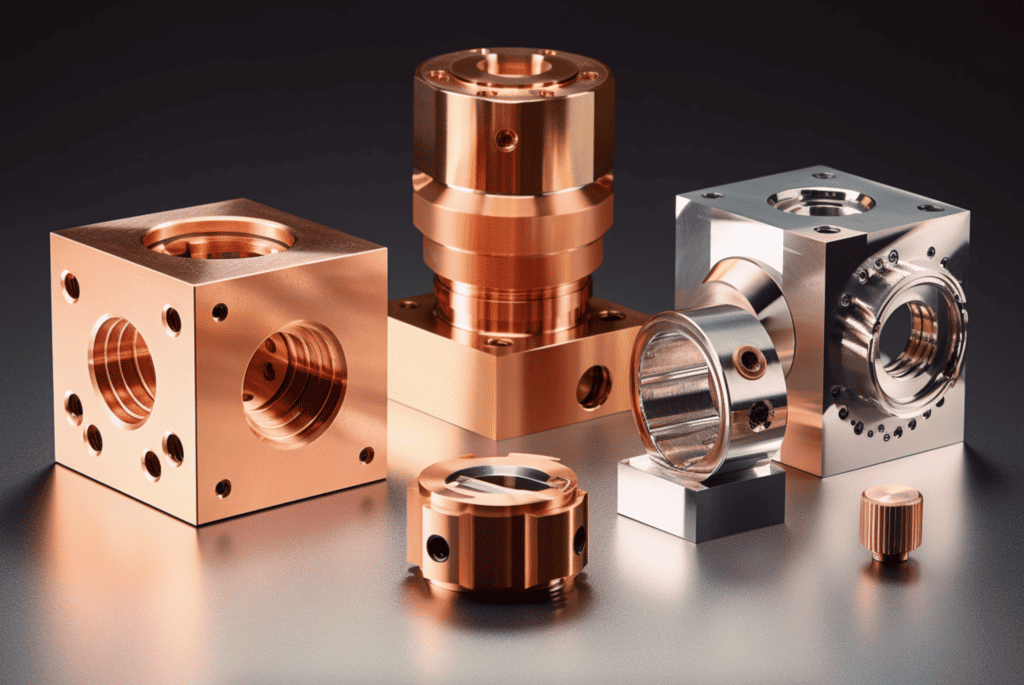
Metal
Metal may be considered an alternative to Delrin and Nylon. Steel and aluminum are strong and can tolerate high temperatures but are less chemically resistant than Delrin and Nylon. Additionally, they typically cost more and are more difficult to manipulate.
In conclusion, while several materials can serve as alternatives to Delrin and Nylon, the best choice will depend on the application’s specific requirements.
Consider factors such as tensile strength, dimensional stability, temperature resistance, and cost when choosing a material for your application.
Wear Resistance and Durability
Regarding wear resistance and durability, Delrin and Nylon are reliable materials for demanding applications. However, some differences between the two can influence their performance in specific situations.
Delrin's Wear Resistance and Durability
Delrin is known for its excellent wear resistance, one of its key benefits. The latter is particularly true for Delrin AF, filled with Teflon fibers to improve its friction characteristics and wear resistance. Delrin is ideal for applications with reduced friction, such as in bearings and bushings.
In terms of durability, Delrin is a strong material with high tensile strength and excellent dimensional stability. Thus, it can maintain its size and shape under stress, making it suitable for applications requiring tight tolerances. Furthermore, Delrin’s low moisture absorption means it performs well in wet environments, which can be demanding on many materials.
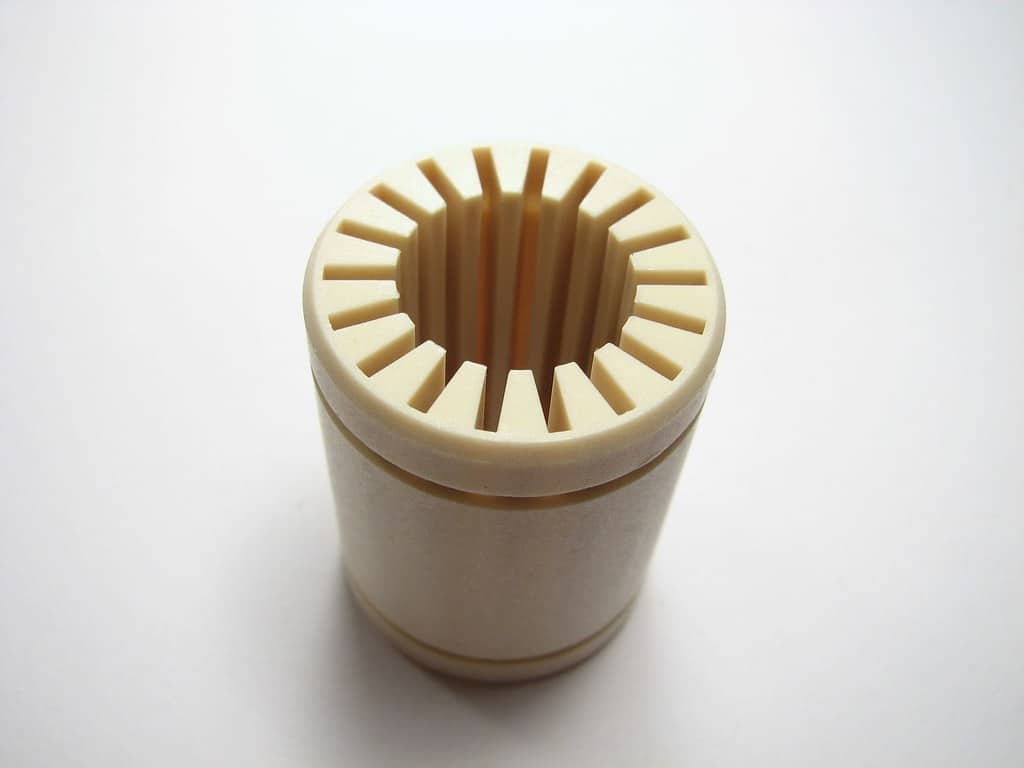
Nylon's Wear Resistance and Durability
On the other hand, Nylon is a durable material that has high tensile strength. It is recognized for its toughness and flexibility, enabling it to endure stress without breaking. Hence, this makes Nylon a good material when high mechanical strength is required.
When it comes to wearing resistance, Nylon performs well. Its ability to withstand wear and abrasion makes it appropriate for motion and rubbing situations.
However, Nylon’s wear resistance can be affected by moisture absorption. When Nylon absorbs moisture, it can lead to changes in its physical and chemical properties, which may affect its wear resistance.
Conclusion
In conclusion, Delrin and Nylon are versatile, high-performance materials with unique properties. The choice between them depends on specific application requirements.
In the future, how will advancements in material science enhance these materials and reshape industries?
Frequently Asked Questions
Both Delrin and Nylon are high-tensile strength plastics. The tensile strength of Delrin is about 10,000 psi, whereas Nylon’s tensile strength can vary between 6,000 and 12,000 psi, contingent on the type and grade.
Delrin is ideal for applications that require high strength, rigidity, and dimensional stability. It’s also suitable for low-friction applications like gears and bearings.
Delrin and Nylon both have good abrasion resistance. It makes them ideal for wear applications where parts are subject to friction and wear.
Delrin and Nylon both perform well in ASTM tests, which measure various properties such as tensile strength, impact resistance, and heat deflection temperature.
Delrin has a modulus of elasticity of approximately 450,000 psi, indicating its stiffness. Nylon, conversely, can have a modulus of elasticity ranging from 150,000 to 500,000 psi.
The Shore D hardness, which measures a material’s resistance to indentation, is about 85 for Delrin and can range from 70 to 85 for Nylon.
Both Delrin and Nylon have good electrical properties. They are both excellent insulators often used in electrical and electronic applications.
Nylon generally has a higher elongation at break compared to Delrin. This means Nylon can stretch more before breaking, contributing to its toughness and flexibility.
